Search Images
Browse Content (p. 423)
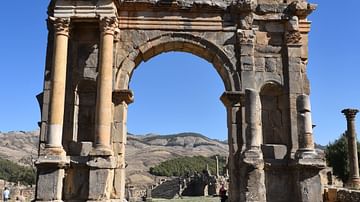
Image
Arch of Caracalla, Cuicul (Djémila)
The arch of Caracalla (r. 211-217 CE) at Cuicul (modern Djémila in Algeria) marked the western entrance to the Severan Forum and the city itself. It was erected in 216 CE by the inhabitants of Cuicul in honour of the reigning Roman emperor...

Image
Cardo Maximus in Cuicul (Djémila)
Like all Roman cities, Cuicul (modern Djémila in Algeria) was organised around its two main axes: decumanus (main east-west street) and cardo (main south-north street). At Cuicul, the Cardo Maximus was 5 m (16 ft) wide and bordered on both...

Image
Ancient Theatre of Iol Caesarea, Algeria
The ancient Theatre of Iol Caesarea (modern Cherchell in Algeria) was probably built during the time of Juba II (c. 48 BCE-23 CE). The orchestra was modified towards the end of the 2nd century CE or the beginning of the 3rd century CE to...

Image
Nasmyth's Steam Hammer
An 1871 oil painting of a steam hammer invented by the Scotsman James Nasmyth (1808-1890) in 1839 during the Industrial Revolution. The steam-powered machine lowered a weight onto an anvil using gears which allowed for both precision and...

Image
Veronica x franciscana (Blue Gem)
Hebe x franciscana (Blue Gem) flower and leaves.
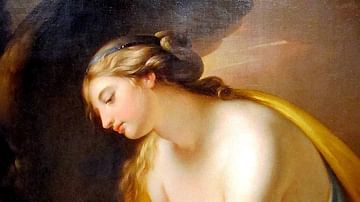
Image
Hebe Giving Drink to the Eagle of Jupiter
Hebe Giving Drink to the Eagle of Jupiter, oil on canvas by Gavin Hamilton, 1767. Height: 127 cm (50 in); width: 94 cm (37 in).
Cantor Arts Center at Stanford University, California.
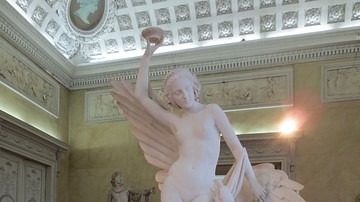
Image
Hebe & the Eagle of Jupiter
Hebe and the Eagle of Jupiter, by sculptors François Rude and Paul Cabet, 1852-1857.
Dijon Museum of Fine Arts.
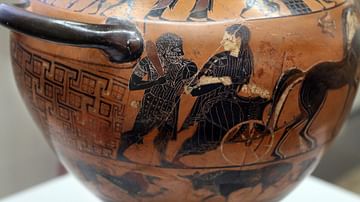
Image
Hebe Bringing Heracles to Olympus
The Ricci Hydria, showing Hebe bringing Heracles to Olympus from earth upon his apotheosis, c. 530 BCE.
National Etruscan Museum, Rome.

Image
Portrait of Anna Pitt as Hebe
Portrait of Anna Pitt as Hebe, oil on canvas by Elisabeth Vigée-Lebrun, 1792.
Hermitage Museum, Saint Petersburg.
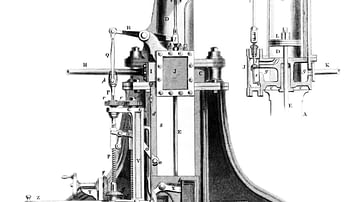
Image
Diagram of a Nasmyth Steam Hammer
An 1854 diagram of the steam hammer invented by James Nasmyth (1808-1890) in 1839. The hammer used steam power to precision drop a weight which bent metal to specification. (From Cyclopædia of useful arts, mechanical and chemical, manufactures...